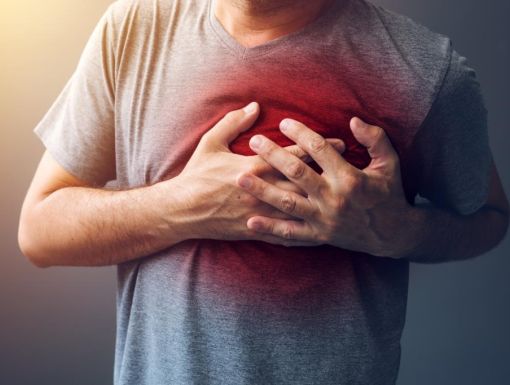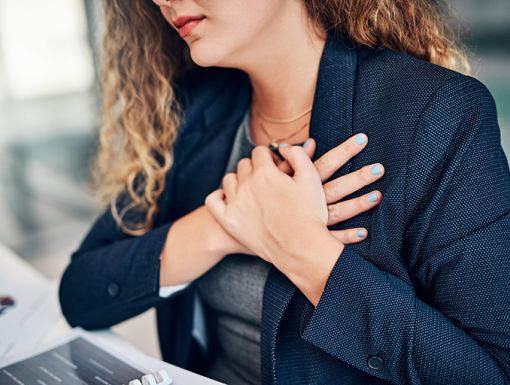
What Are the First Signs of Heart Disease in Women?
Heart disease is the leading cause of death among women, claiming millions of lives each year. Yet, many women remain unaware of their unique risk factors or how their symptoms differ from men’s. This knowledge gap can delay care and worsen outcomes. By recognizing the distinct signs, risks and preventive measures, women can take control of their heart health and act swiftly in emergencies.
How does heart disease differ in women?
While men and women can experience coronary artery blockages, heart disease often presents differently. Women are more likely to encounter conditions such as microvascular dysfunction, a condition affecting smaller blood vessels that may not appear on standard tests. This phenomenon, along with fluctuating hormone levels, can make women’s symptoms harder to recognize and diagnose.
Women can also suffer from ischemia with non-obstructive coronary arteries (INOCA), a form of heart disease where blood flow to the heart is reduced to the heart without major blockages. This can affect younger women and those without traditional risk factors, making awareness critical.
What are signs of heart disease in women?
Heart attacks are often portrayed as dramatic, chest-clutching events. However, women’s symptoms can be far more subtle, leading to misdiagnosis or dismissal. Here are key warning signs to watch for:
- Pain in unusual areas: Discomfort in the arms, shoulders, neck, jaw, back or upper abdomen may replace the classic chest pain. This pain can come and go, often mistaken for other conditions.
- Breathlessness: Feeling out of breath during non-strenuous activities, like sitting or lying down, could signal a heart attack.
- Extreme fatigue: Persistent, unexplained exhaustion that interferes with daily life may be a red flag.
- Cold sweats: Sudden, clammy sweats unrelated to exertion or temperature changes can indicate heart trouble.
- Nausea and stomach discomfort: Heart-related stomach issues can mimic indigestion but are often described as feeling like a heavy pressure or severe fullness.
- Lightheadedness or confusion: Dizziness or mental fog, especially when paired with other symptoms, should not be ignored.
These symptoms are often attributed to stress, fatigue or hormonal changes, causing many women to delay seeking help.
What are heart risk factors every woman should know?
Certain risk factors disproportionately affect women, including:
- Pregnancy-related conditions: Complications such as pre-eclampsia, gestational diabetes or high blood pressure during pregnancy significantly increase future cardiovascular risks
- Irregular menstrual cycles and polycystic ovary syndrome (PCOS): Hormonal imbalances from conditions like PCOS can indirectly impact heart health
- Menopause: Declining estrogen levels accelerate arterial damage, increasing the risk of blockages and microvascular dysfunction
- Autoimmune disorders: Conditions like lupus and rheumatoid arthritis, more common in women, raise inflammation and cardiovascular risks
Despite these risks, women are often underrepresented in clinical studies, leaving many unaware of their vulnerability.
How is heart disease diagnosed?
Your doctor may recommend tests such as:
- Blood work: To check cholesterol, blood sugar, and other markers.
- Electrocardiogram (ECG): Records the heart’s electrical activity.
- Imaging tests: CT scans, MRIs, or echocardiograms (ultrasound of the heart).
- Stress tests: Assess how your heart performs under physical exertion.
- Advanced testing: Cardiac PET scans or angiography may be used to identify blockages or microvascular dysfunction.
For pregnant or breastfeeding women, safer imaging options like echocardiograms or non-contrast MRIs are available to minimize radiation exposure.
What are heart disease treatment options for women?
Heart disease treatment is highly individualized. Medications and lifestyle changes are often the first steps. In some cases, invasive procedures or surgery may be necessary. Pregnant women with heart disease require specialized care to prevent complications.
What are preventive steps for better heart health?
The good news? Many cases of heart disease are preventable with lifestyle changes and proactive healthcare. Here’s how to protect your heart:
- Adopt a heart-healthy diet: Focus on plant-based foods, lean proteins and whole grains. Limit saturated fats, salt and refined sugars. Heart-friendly options like salmon, avocados and nuts are excellent choices.
- Stay active: Aim for at least 150 minutes of moderate exercise weekly, such as brisk walking. Regular activity improves circulation and helps maintain a healthy weight.
- Monitor health metrics: Keep blood pressure below 130/80 mmHg, maintain healthy cholesterol levels and manage blood sugar, especially if you have diabetes or pregnancy-related glucose issues.
- Quit smoking: Smoking damages blood vessels and accelerates heart disease. Quitting improves heart health faster than many other changes.
- Manage stress: Chronic stress raises blood pressure and heart rate. Practice mindfulness or engage in hobbies that bring joy.
- Schedule regular check-ups: Partner with your healthcare provider to monitor your heart and catch early warning signs.
Heart disease in women is often misunderstood, but awareness is the first step toward prevention and better outcomes. By recognizing the signs, understanding your risks and adopting a heart-healthy lifestyle, you can protect your heart and live a longer, healthier life.



